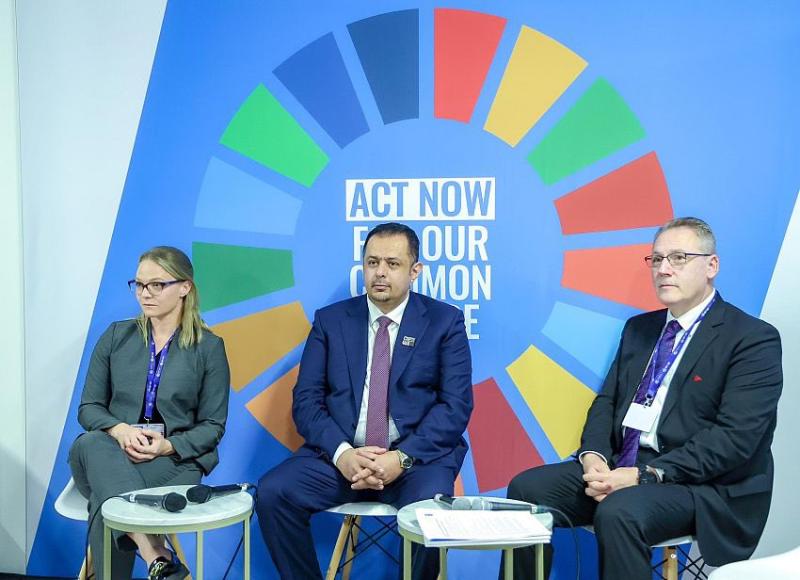Pardee Institute's Taylor Hanna Presents Critical Yemen Climate Report at COP28
At the 28th meeting of the Conference of Parties (COP) to the 2023 United Nations Climate Change Conference, commonly known as COP28, the Frederick S. Pardee Institute for International Futures presented key insights from its report on “The Impact of Climate Change on Human Development in Yemen.” It was commissioned by and made in collaboration with the United Nations Development Programme (UNDP).
Faculty and staff from Appalachian State University and Columbia University also contributed to this report. Joined by colleagues from the UNDP, Taylor Hanna, the Pardee Center’s Associate Director of Development Analysis, unveiled this report on Yemen’s climate future, emphasizing the urgency of addressing the climate crisis in the region.
Hanna’s presentation comprehensively analyzed Yemen's likely climate scenarios and potential economic and human development effects. Findings from the report call for urgent climate action, projecting that Yemen faces a troubling surge in malnutrition and poverty by 2060 along a Current Path trajectory. If no action is taken, climate change could result in a cumulative loss of $93 billion in the gross domestic product (GDP) and an increase of 8.1 million people in extreme poverty and 3.8 million people suffering from malnutrition.
The report also presented a strategic approach to building resilience, offering a potential solution to mitigate the devastating impacts of climate change in Yemen.
This report was met with commendations during its launch at the Sustainable Development Goal Pavilion at the conference, with insightful remarks from Yemen’s Prime Minister, Maeen Abdulmalik Saeed, and the Director of UNDP’s Regional Bureau of Arab States, Abdallah Al Dardari.
Taylor presented the core findings of the report at another COP28 event hosted by the Kuwaiti Fund for Development and also attended a presentation by UN women on the theme, “Water for Life: Achieving Gender Equality in a Context of the Water Crisis,” further strengthening the impact of Pardee Institute's collaborative work.
